
John McCormick writes: Like Pete Sixsmith, I can’t remember a lot of matches against Bristol City (or Rovers for that matter). I’m pretty sure I was at the 6-1 win in ’64 but the only game which sticks in my mind is there because of an overnight trip on a Tennick bus and a team sheet that included Joe Baker. I remembered it as a cup match but when I looked it up on the Statcat website it wasn’t. It can only have been the season-opening 4-3 loss that Pete mentions below, and nothing to do with the cup, so I saw an opening day 7 goal thriller which included Joe Baker netting two of the 12 goals he scored for us, plus a last minute heartbreaker, and I can’t remember it. I blame the drink.
Back to Pete, and let’s be thankful he has a better memory than me:
Bristol City were not a team that we played a great deal in my formative years as a Sunderland supporter. We thrashed them 6-1 in an FA Cup Fourth Round tie in 1964, en route to that epic victory over Everton in Round 5 and that even more epic 3 game rubber against Manchester United in Round 6, but our paths did not cross in league football until 1970. That was the opening game of our first season back in the second level and I will keep my memories of that for February when we visit Ashton Gate, a game I am looking forward to as I have not been there since the opening game of the 1992-93 season.
Bristol is a strange place for sport. They have two senior football clubs who drift around in the lower divisions (Rovers even had a year in the then Conference), a rugby union team who cannot hold a place in the top division, unlike local (and smaller) rivals, Bath and Gloucester and it’s the headquarters of Gloucestershire County Cricket Club who, after the glory years of Mike Procter, Courtney Walsh and Zaheer Abbas, are permanent fixtures in the Second Division, doomed to play Leicestershire, Glamorgan and probably Durham every year until the ECB winds up the Championship.
So, the game I saw at Roker Park on the 17th October 1970, was really the second time I saw The Robins. They had beaten us 4-3 in August and by the time they pitched up at Roker, we were stuck in mid table in 12th place (what wouldn’t we give for that now) and they were somewhere below us. As usual, the club had no money and Alan Brown had a very limited budget. But he had looked down the back of the metaphorical settee and had scraped up enough to go to Ayr United and offer them £30,000 for their right back, Dick Malone.
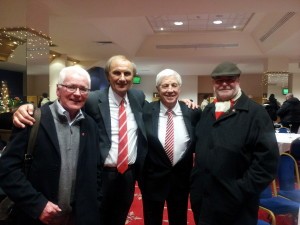
He turned out to be an astute signing and is fondly remembered by that dwindling band who witnessed the 1973 FA Cup Final. Deputed by Bob Stokoe to mark Eddie Gray, he did one of the great man to man marking jobs of all time. Gray, a Scottish international (when that meant something), was tipped to be the match winner by the know-all pundits and Dick was seen as a potential weak link. But, as he said in a post-match interview, “Eddie Gray Eddie Gray? He murdered me. They took him off.”
His Roker debut was not particularly auspicious. He lasted 50 minutes before he was replaced due to an injury which kept him out for a month despite never having been injured during the four years and 163 games he played for the Somerset Park Club.
The team that day was;
Jimmy Montgomery; Dick Malone, Cec Irwin; Colin Todd, Richie Pitt, Mick McGiven; Ian Porterfield, Bobby Kerr, Joe Baker, Gordon Harris, Billy Hughes. Sub; Bobby Park.
Six of those were in the cup winning side and only four of them cost a fee.
City lined up like this;
Mike Gibson; Steve Stacey, Brian Drysdale; Ken Wimshurst, Dickie Rooks, Gordon Parr; Alan Skirton, Chris Garland, John Galley, Gerry Gow, Gerry Sharpe sub; Trevor Tainton.
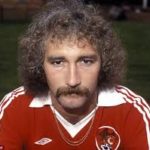 |
Chris Garland went on to play for Chelsea and Leicester City before a second stint at Ashton Gate, John Galley was a bustling centre forward signed from Rotherham United who averaged a goal every two games and Gerry Gow played over 300 games for City before an illustrious swan song at Manchester City, where he played in the 1981 FA Cup Final. He also had a moustache that James Finlayson would have been proud of. | 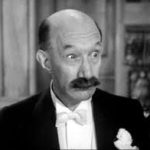 |
The player who got the biggest ovation from the 17,226 souls scattered around an already decaying Roker Park was Dickie Rooks. He was born in the then town and joined the club from Silksworth Juniors in 1957. As a centre half he had to dislodge Charlie Hurley and good as he was, he couldn’t do that.
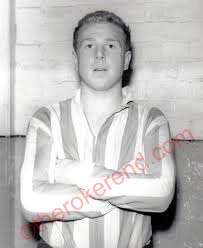
In the eight years he spent at Roker, he managed 34 appearances, scoring two goals, before his old team mate Stan Anderson took him to Middlesbrough, where he played a major part in getting them out of Division Three. He joined City in 1969, playing 96 times for them before coming home and managing Willington in the Northern League. Always a popular player, we could do with the likes of Dickie now. Bring yer boots on Sat’da, marrer.
The game was won in the 30th minute thanks to a Mick McGiven goal. Little of the game sticks in my memory other than the fact that we won. It lifted us to 9th in the league (oh such glory days!!) and there was hope that a promotion push could be mounted.
It turned out to be our highest position as we turned in a remarkably average season, winning 15, losing 15 and drawing 12 while scoring 52 and conceding 54 to end up with 42 points from 42 games. We did the double over Sheffield Wednesday and relegated Blackburn Rovers and Bolton Wanderers, while Cardiff City and Hull City did it over us.
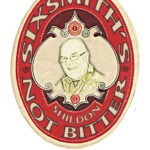
I was in my sophomore year at Sunderland College of Education, living in Williamson Hall in The Cloisters and spending my time swilling Newcastle Starbrite in the college bar while avoiding the gimlet eye of Jack, the one legged barman (he lost it in a scuffle with a keg of Whitbread Tankard). My grant was probably stretched although I had worked as a medical orderly at Aycliffe Hospital over the summer so I had some savings which were deposited in the Fawcett Street branch of the National Westminster Bank. I may have spent some of it on clothes from C&A or Joplings or on discs from Bergs or Palmers – but not on books from Hills in Waterloo Place.
What to expect on Saturday?
City are a team with no stars – just like Cardiff, Sheffield United and QPR – so we can expect a well organised, well-disciplined performance, the exact opposite of what we have seen from our lot this year.
Goalkeeper Frank Fielding is an England under 21 international (so was Jason Steele) and has been at Blackburn and Derby. He is a great fan of his mam’s roast dinner, so let’s hope that he has had a huge plate full before the game. Centre forward Matty Taylor crossed the divide in the summer when he moved from Rovers to City, not a move that endeared him those who follow “The Gas.” His liking of eggs and avocado on toast will no doubt sustain him through many dark nights of the soul.
Bobby Reid made his debut in May 2011, a day when we won at Bolton with a team that contained the likes of John Mensah, Stephane Sessegnon, Steed Malbranque and Bolo Zenden. Bit of a change there, then. Bobby is partial to curried goat and rice.
They also have peripatetic midfielder Gary O’Neill, a strong central defender in Aiden Flint and an Icelandic international in Hordur Magnusson – plus manager Lee Johnson, who can clearly organise a defence as they have only conceded 6 goals in 13 games. Maybe he could moonlight at the Academy and teach our lot how not to allow all and sundry to score.
If we collapse again, I would expect to see the manager leave before the Bolton game. There are plenty out there looking for work; Ronald Koeman left Everton, Craig Shakespeare was pushed out at Leicester and Wilf Constantine walked away from Crook Town. Would any one of those three be able to organise our disparate bunch of players?
Answers on a postcard, please, to Martin Bain.
I don’t think I ever saw Bristol City live, but the player that stands out in my memory for them is the late, great John Atyeo.
Atyeo was one of the most exciting players in the country in his day, and as good a centre forward as any at the time [ and there was a lot of competition, not least Nat Lofthouse and Tommy Taylor, both of whom would be worth millions these days ]
He was prolific for his club, and scored 5 goals in only 6 international outings [ why he didn’t get more caps is a total mystery.
Great player.
Love it – and so will my nephew Phil! Mike Gibson must have been so poorly paid by City that he had to supplement his income by coaching the amateur team I played for which inhabited the Bristol Regional League, one of the lower leagues of local football.